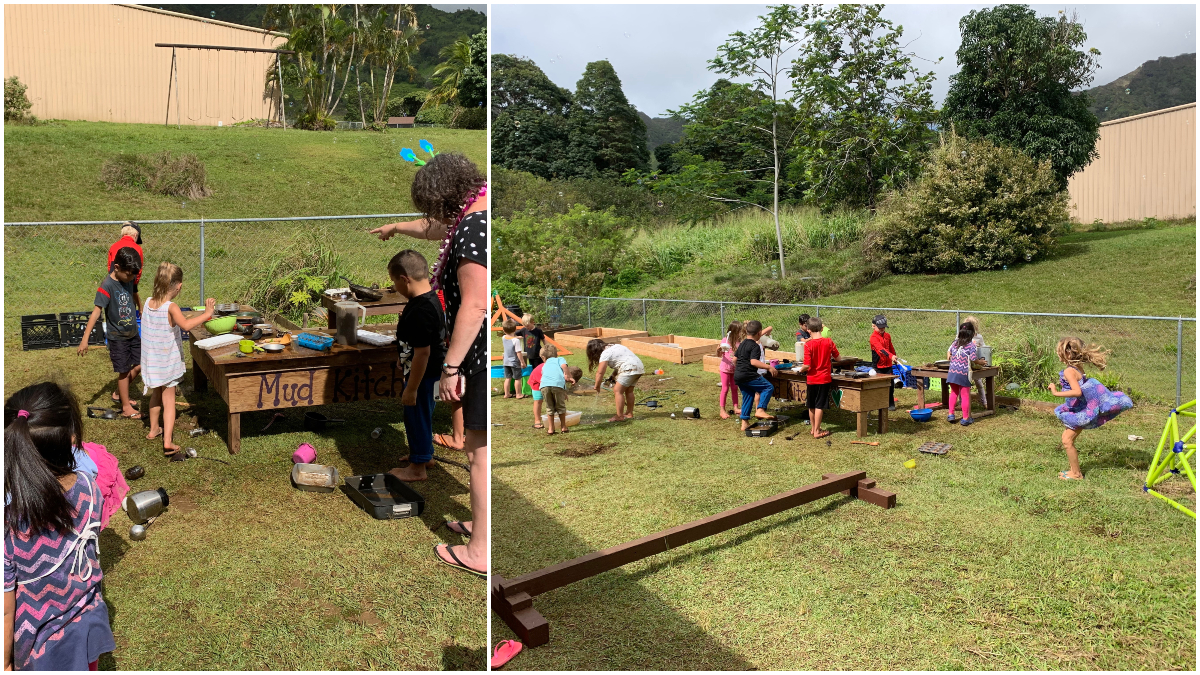In Alaka’i’s outdoor play-based classroom, we’re starting with a mud kitchen and a loose-parts center.
Mud kitchens are an excellent source of learning for children. There are several great resources on the Being Makers website that explain the benefits of mud kitchens and outdoor classrooms. Mud kitchens foster children’s creativity, social-emotional skills, problem-solving skills, and more.
When playing with mud, their fine motor skills and sensory exploration are also being utilized through pouring, stirring, scooping, and interacting with the texture of the mud. Kids also learn to work together. It’s fun to see children creating a pretend restaurant or developing a new mud recipe.
When asked if she liked to make mud pies, a kindergartener said, “I like making grass salads and mud pizza.”
Outdoor classrooms also minimize behavior problems, because children are highly engaged exploring and learning through play. In addition, outdoor classrooms help to meet state standards in a child-centered way. For example, kids can practice a math problem such as 5 + 3 using sticks or shells.


